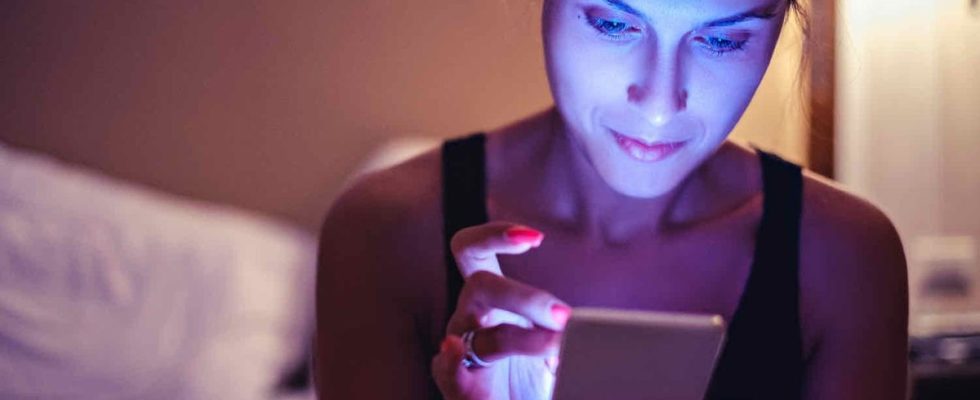Published on
Updated
Reading 2 min.
Against all expectations, researchers have discovered that blue light has “little” effect on our circadian circle and therefore our sleep. What calls into question the recommendations of good practice?
It’s difficult to escape the famous blue light, which emanates from tablet, computer and mobile phone screens. This spectral light (whose wavelengths are between 380 and 500 nanometers) has been accused for several years of disrupting our circadian circle, particularly with consequences on our sleep. Today, a study challenges this bad reputation.
No evidence of a blue light effect
As part of this study, 16 healthy candidates were exposed to three types of light (yellow, white and blue) for an hour, shortly before bedtime.
To understand the effects of different light stimuli on the body, the researchers determined whether the participants’ internal clock changed depending on the color of the light. Additionally, they assessed how long it took the volunteers to fall asleep and how deep their sleep was at the start of the night. The researchers also asked about their fatigue and tested their ability to respond, which decreased with increasing sleepiness.
So what were the effects of these lights on the volunteers’ circadian clock? No big differences were noticed, according to researchers from the University of Basel and the Technical University of Munich.
“We did not find conclusive evidence for differences between the three lighting conditions regarding circadian melatonin phase delays, melatonin suppression, subjective sleepiness, psychomotor alertness, or sleep. say the scientists.
Results contradict official recommendations
Rather surprising results, which contradict the conclusions established in the past and the recommendations of health authorities.
On this subject, ANSES (National Agency for Food, Environmental and Occupational Health Safety) takes the opposite view: “Even very low exposure to blue light in the evening and at night disrupts biological rhythms and therefore sleep.“.
And this, particularly in children and adolescents who are very exposed to screens, and whose lens of the eye does not filter the waves as well.
Consult a doctor online for your sleep problems
What can we do despite everything to minimize the impact of blue light?
Several good health reflexes can be adopted:
- Avoid using electronic devices before sleeping and installing blue light filters on screens;
- Avoid looking at screens in the dark;
- Use protective glasses (in France, several brands have recently offered “selective photoprotection” lenses, i.e. glasses whose lenses have a filtering treatment).
